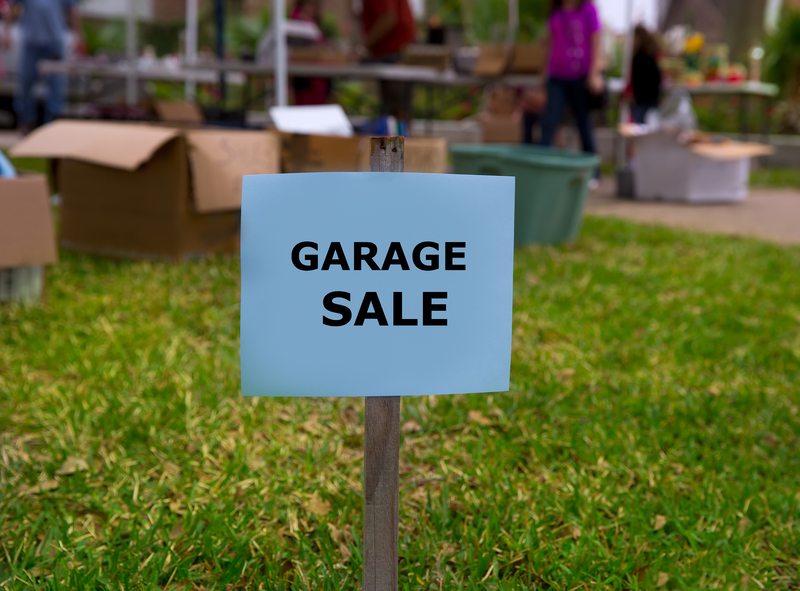Overcome Overwhelm with Efficient Clutter Removal and Hoarding Clean Up
Feeling overwhelmed by clutter is a common experience that can cause intense stress, frustration, and anxiety. Whether you're struggling with everyday mess or facing the challenging task of a hoarding clean up, it can be tough to know where to begin. Luckily, there are proven strategies to help you achieve a clean, organized, and welcoming living space. This comprehensive guide explores how efficient clutter removal and proactive cleanup overcome overwhelm, restoring comfort, safety, and peace of mind.
Why Clutter Causes Overwhelm and Stress
Clutter is more than just an eyesore. Numerous psychological studies have linked a cluttered environment to increased levels of stress, anxiety, and even depression. Here's why:
- Visual overload: Excess items bombard the senses, making it hard to relax or focus.
- Reduced productivity: Searching for misplaced items wastes time and energy.
- Conflict trigger: Clutter can cause tension among household members.
- Unhealthy environment: Dust, mold, and allergens accumulate where clutter collects.
- Obstacle to well-being: Surplus belongings hinder healthy routines, exercise, and social gatherings.

Understanding the Difference: Clutter vs. Hoarding
It's crucial to distinguish between everyday clutter and the more serious condition of hoarding. While both can make spaces difficult to use and enjoy, hoarding disorder is a recognized mental health concern that often requires specialized intervention.
- Clutter: Accumulation of items due to a busy lifestyle, procrastination, or poor organization habits. Usually manageable with routine decluttering and cleaning.
- Hoarding: Persistent difficulty discarding or parting with possessions, regardless of value. This often results in cramped living areas, safety hazards, and emotional distress.
If you're unsure where a situation falls, look for red flags such as blocked exits, unusable rooms, extreme dust or odor, and growing emotional reluctance to let go. In severe situations, hoarding clean ups require a compassionate, tactful approach often involving professional help.
The Benefits of Efficient Clutter Removal
Investing your time in efficient clutter removal offers tangible, wide-ranging rewards:
- Improved mental health - reduced anxiety and increased peace
- Enhanced home safety - clear exits and walkways prevent falls
- Better air quality - less dust, dander, and allergens
- Higher productivity - everything you need is accessible
- More space to enjoy - rooms for hobbies, guests, relaxation
- Greater self-esteem - pride in your living space
How to Start: A Step-by-Step Guide to Clutter Removal
Facing a cluttered home can feel like an insurmountable challenge, but the right strategies make it possible to regain control. Try these step-by-step tactics for efficient clutter clean up:
1. Create a Plan & Set Realistic Goals
Don't try to tackle an entire house in one day! Instead:
- Break the project into rooms or zones.
- Set a timer for 20-30 minutes per session.
- Start with spaces you use most often (kitchen, living room).
2. Gather Supplies Before You Begin
Stock up on:
- Heavy-duty trash bags
- Storage bins with lids
- Cleaning supplies (disinfectant, rags, gloves)
- Labels and markers
- Donation containers or boxes
3. Sort Items Using the Four-Box Method
Designate containers for:
- Keep - items you love and use regularly
- Donate - items in good condition others could use
- Trash/Recycle - broken or unusable objects
- Relocate - items that belong elsewhere in your home
4. Remove Trash and Donations Immediately
Avoid the temptation to let donation items pile up. Schedule a donation pick-up or drop off as soon as possible.
5. Deep Clean and Organize
Once a space is decluttered, scrub surfaces, vacuum, and dust thoroughly. Store remaining items in clear, labeled bins for easy access.
6. Establish Daily or Weekly Routines
A quick daily tidy (10-15 minutes) prevents clutter from creeping back in. Set reminders, involve family members, and celebrate your successes!
Specialized Solutions: Hoarding Clean Up Services
When standard decluttering isn't enough, or when mental health factors are present, it's time to explore professional hoarding clean up services. These experts offer:
- Non-judgmental, compassionate support
- Safety-focused cleaning and disposal methods
- Specialized PPE for mold, biohazards, animal waste
- Cooperation with mental health professionals if needed
- Disposal and recycling in accordance with local laws
Choosing the Right Clutter Removal and Clean Up Services
When hiring outside help for clutter removal or hoarding clean up, look for:
- Licensed, insured, and bonded companies
- Transparent quotes and written estimates
- References and online reviews
- Clear procedures for privacy and confidentiality
- Ability to handle hazardous materials safely
Tips for Preventing Recurring Clutter and Hoarding
Sustaining a clutter-free home requires ongoing effort, intentional habits, and sometimes a shift in mindset. Here are effective preventative strategies:
- Adopt the "one in, one out" rule - For every new item, donate or discard one you no longer use.
- Set up a donation box in your closet or garage; add to it regularly.
- Avoid impulse buying - Shop with a list and pause before purchases.
- Schedule monthly mini-declutters for high-traffic areas.
- Establish designated places for frequently-used items (keys, mail, bags).
- Involve the whole household - share responsibilities and routines.
Mindset Matters: Emotional Blocks to Decluttering
Physical clutter often reflects emotional attachments, memories, or fears of scarcity. It's common to struggle with feelings like guilt ("I paid good money for this!"), obligation ("It was a gift"), or anxiety about letting go. Overcoming these blocks often requires:
- Focusing on the benefits (space, peace, comfort)
- Remembering that memories live in us--not just objects
- Allowing yourself to donate items that don't bring joy
- Seeking support from friends, family, or professionals
Safety and Hygiene in Hoarding and Cluttered Environments
Clutter can sometimes pose serious health risks:
- Fire hazards - Flammable items can quickly ignite.
- Trip and fall risks - Blocked hallways and rooms increase accidents.
- Pest infestations - Food waste and cardboard attract rodents or insects.
- Mold and bacteria - Hidden spills, leaks, or organic matter promote dangerous growth.

The Positive Ripple Effects of a Tidy Home
A clean, orderly home impacts every area of your life:
- Better sleep and restfulness
- Stronger relationships with family and friends
- Increase in motivation for projects and hobbies
- Improved financial health (less spending, fewer late fees)
- Greater pride and self-worth
Conclusion: Take the First Step Toward Overwhelm-Free Living
From simple clutter reduction techniques to comprehensive hoarding clean up services, a brighter, healthier home is within reach. Remember: you don't need to do it all at once--small victories add up, and help is always available if you need it. By prioritizing efficient clutter removal and proactive strategies, you reclaim not only your space but also your well-being and peace of mind.
Ready to overcome overwhelm? Start with one drawer, one shelf, or one call to a trusted hoarding clean up professional. Your future, clutter-free self will thank you!
